Many many years ago, well before Olivia was born, Catherine and I bought a canoe, from Sporting Intentions, two locations ago.
We had aspirations, and while we did put in a few times—in Bonshaw, in Morell, and once, when Olivia was young, in Johnsons River—the canoe has mostly sat in our carriage house for the last 20 years.
This year I decided to see if I could resurrect it, and Olivia helped me pull it out to take a look.
While the hull is in good shape, its Achilles heel has been rivets that have corroded over time, causing the seat in the bow to become detached, and rendering the bow deck unstable. Fortunately, Sporting Intentions was able to put me in touch with someone who can re-rivet these back into place; he’s coming over next week.
Which left me with the question of how to transport the canoe to water. It seemed absurd, given that I live 450 m from Charlottetown Harbour, to think about driving the canoe anywhere. So, instead, I ordered a canoe-carrying trailer for my bicycle from Guelph-based Wicycle, a company I’ve long-admired. It arrived yesterday, and I assembled it today (an easy snap-together process). Getting it under the canoe was a one-person job, and the bicycle-side hitch, while a little fiddly, was also easily installed.
If the repair goes as expected next week, I should be on the road and down to the water the first calm day that follows. You’ll recognize me as the guy towing a canoe.
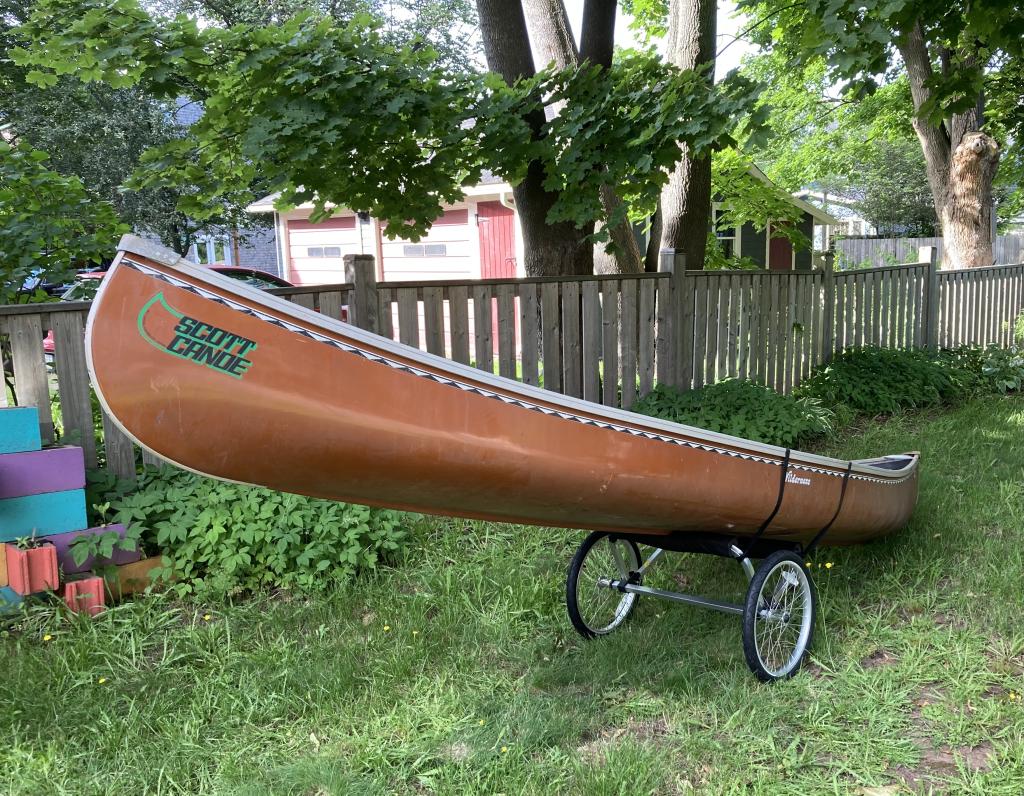
I had no idea that Sharee Fitch runs a seasonal bookstore just across:
Writer, poet, educator, Sheree Fitch & husband Gilles Plante, a retired CBC cameraman and ENG producer & carpenter live on the hobby farm Happy Doodle Do with horses, hens, a donkey named Willow, a cat named Pippy Longstocking, dogs named Burns and Whimsy and a few lambs in the summer.
Sheree’s passion for books and Gilles the builder‘s love of making things, their combined commitment to rural coastal Atlantic Canada and community led them to dream of opening Mabel Murple’s Book Shoppe and Dreamery.
Yes, a seasonal indie book shoppe and fresh air experience on a dirt road!
River John is just 30 minutes from the Caribou ferry.
(via Bren Simmers, who will be part of Gaspereau Day there, tomorrow, July 18, 2021).
On the wharf in North Rustico Harbour. Apparently the lobsters are also subjected to colour-coded cohorts.
We were there to try out the new Blue Mussel Café side-hustle The Blue Roller, in a trailer out front and with a menu consisting entirely of foods ending in “roll.” Pricey, but also friendly and tasty.
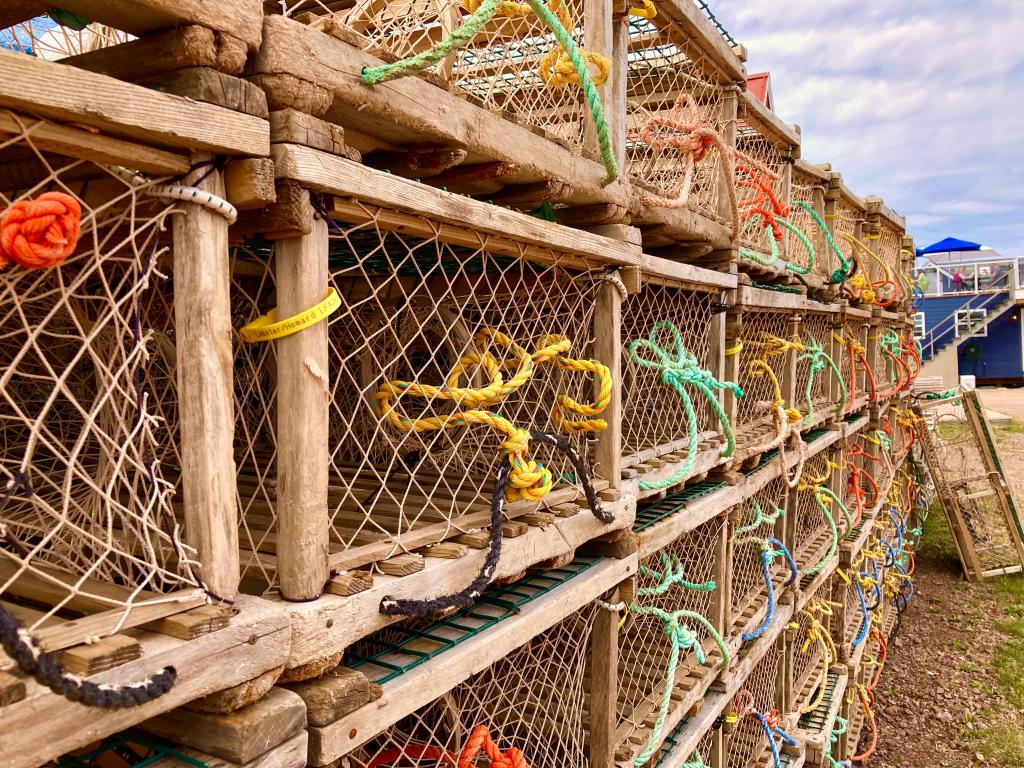
Bruce MacNaughton has opened a lovely new riverside café beside the Prince Edward Island Preserve Company in New Glasgow. I had my Saturday morning coffee there this morning, and it was lovely, both the coffee and the view.

Item one on today’s list of 8 critical things was to make one of the sauces from this New York Times article. I chose this roasted tomato dressing and then immediately realized that I was lacking sufficient tomatoes.
I’ve lately been grappling with the moral indefensibility of car travel, electric or otherwise, for trips that can be reasonably executed by bicycle, and this led me to hop on my bicycle and ride up to Riverview Country Market for said tomatoes (pro tip: a straight shot down Kent Street to the Confederation Trail, and then out the Riverside Drive trail, is my new favourite route there).
Cycling back home I decided that I’d use the dressing as a salad dressing, being well-equipped with greens from yesterday’s market pickup. What better to go with a summer salad, I thought, then some good bread. So on the cycle home I detoured to Red Island Cider, a Pendergast bread outlet, and braved the cidery crowds to pick up a loaf. Lacking sufficient cargo space on my bike, I took advantage of the bread’s substantial heft to simply strap it to the rack.
The dressing is chilling now, and item one on my list is duly crossed off.
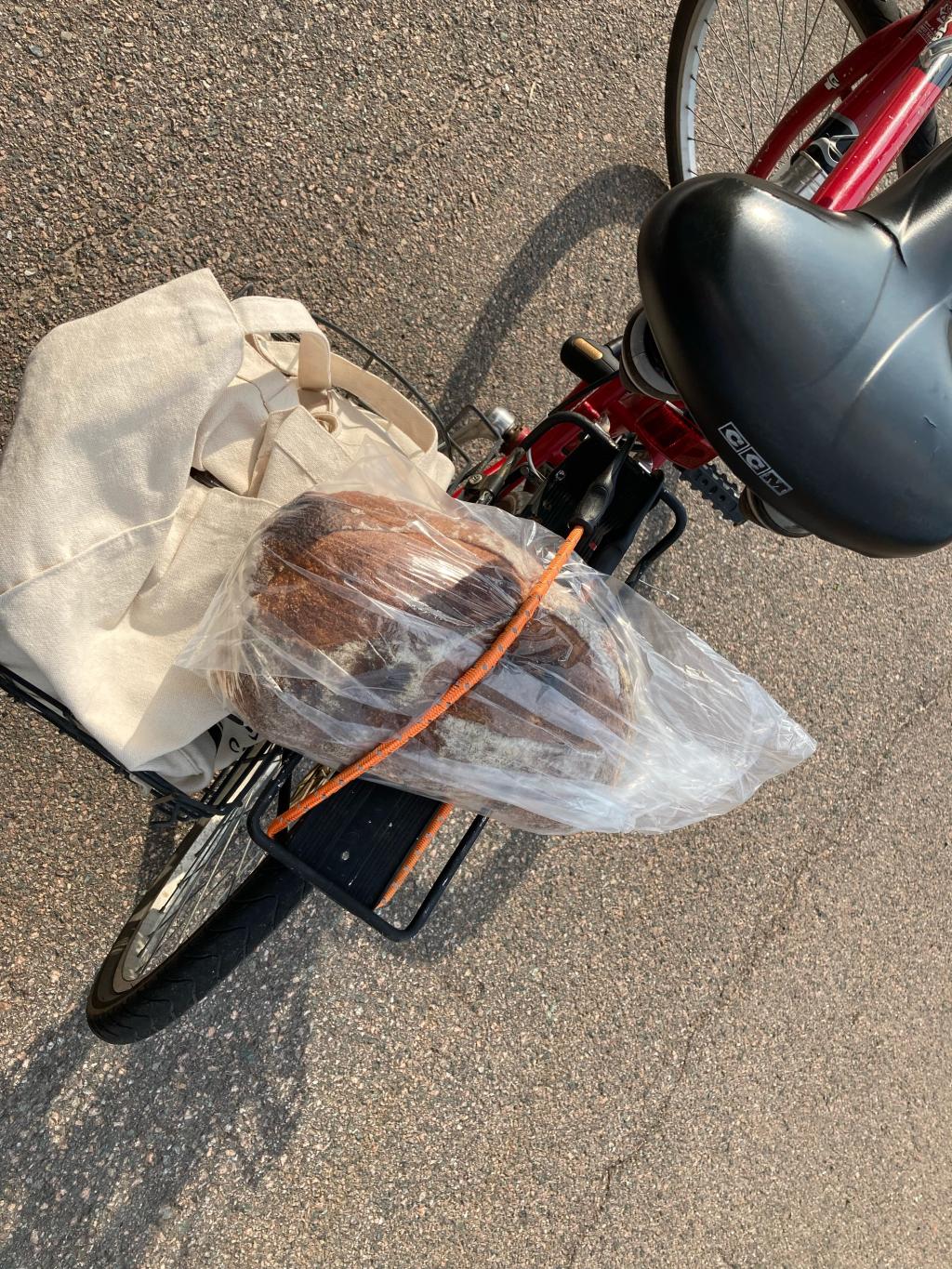
Starting on July 12, 2020, I began reading my blog from the beginning, one day of the year’s worth of posts at a time. As of this week I’ve read the entire corpus.
Since my first one on May 31, 1999, I’ve made 10,124 posts here, writing 2,315,925 words in the process.
I used the opportunity to do a little bit of maintenance: I repatriated video and audio that was originally embedded from sites like YouTube, Vimeo and SoundCloud to be stored locally (for the video I used a scheme I conjured up in 2018 to automate all the steps). There were 200 videos in all, and 295 sounds.
I also worked to finish the repatriation of images, started in 2018 with my decamping from Flickr. There were a bunch of images I’d embedded on the ill-fated Share on Ovi platform still in place; some of these I was able to recover from my local backups, others are lost to history (the Internet Archive, alas, did not archive Share on Ovi).
Beyond the technical upkeep, though, the meat of the exercise was revisiting 22 years of my life.
Reading posts from the same day all at once turned out to be an interesting way to cross-cut through posts that were written in chronological order. So, for example, I’ve just finished a month or so of reading posts made from Copenhagen and Sweden on the many early-summer trips I took there over the years; back in March it was the trips I took during the school break with Olivia; in December it was 22 years worth of Christmas Days, and in June it was a year by year trip through Catherine’s birthdays.
In the winter of 2003 I attended an event hosted by ur-blogger Dave Winer in Cambridge, a gathering of the bloggers to talk about blogging. During the Q&A I made a comment that, as much as anything, I was writing for Olivia, writing the story of my life as she was growing up. What I’ve realized since is that I was, in truth, writing for myself: messages in a digital bottle that, here in the future, remind me of who I was, where I’ve been, what I did (and didn’t) do.
It’s a daunting prospect to read your 35 year old self (or to listen to your 25 year old self), and I must admit that I breezed over much of the mid-to-late aughts angry-at-Island-Tel-and-CADC-and-the-world post archive. But in addition to my angry young man self, I was reminded of some beautiful moments too, many of them. And to read myself grow up.
This blog will be, I think, the grand project of my life. I’ve been doing it for so long that writing here falls into the same category as eating and sleeping: it’s just simply how I live, and I cannot imagine not doing it.
Now that I’ve read the entire thing, I’m going to try and tamp down my predilection for nostalgia and focus forward. There’s lots more to see and do and be. And to write about.
How many ID numbers and “no parking” rules (with different dates) can Charlottetown pack onto a single parking meter?
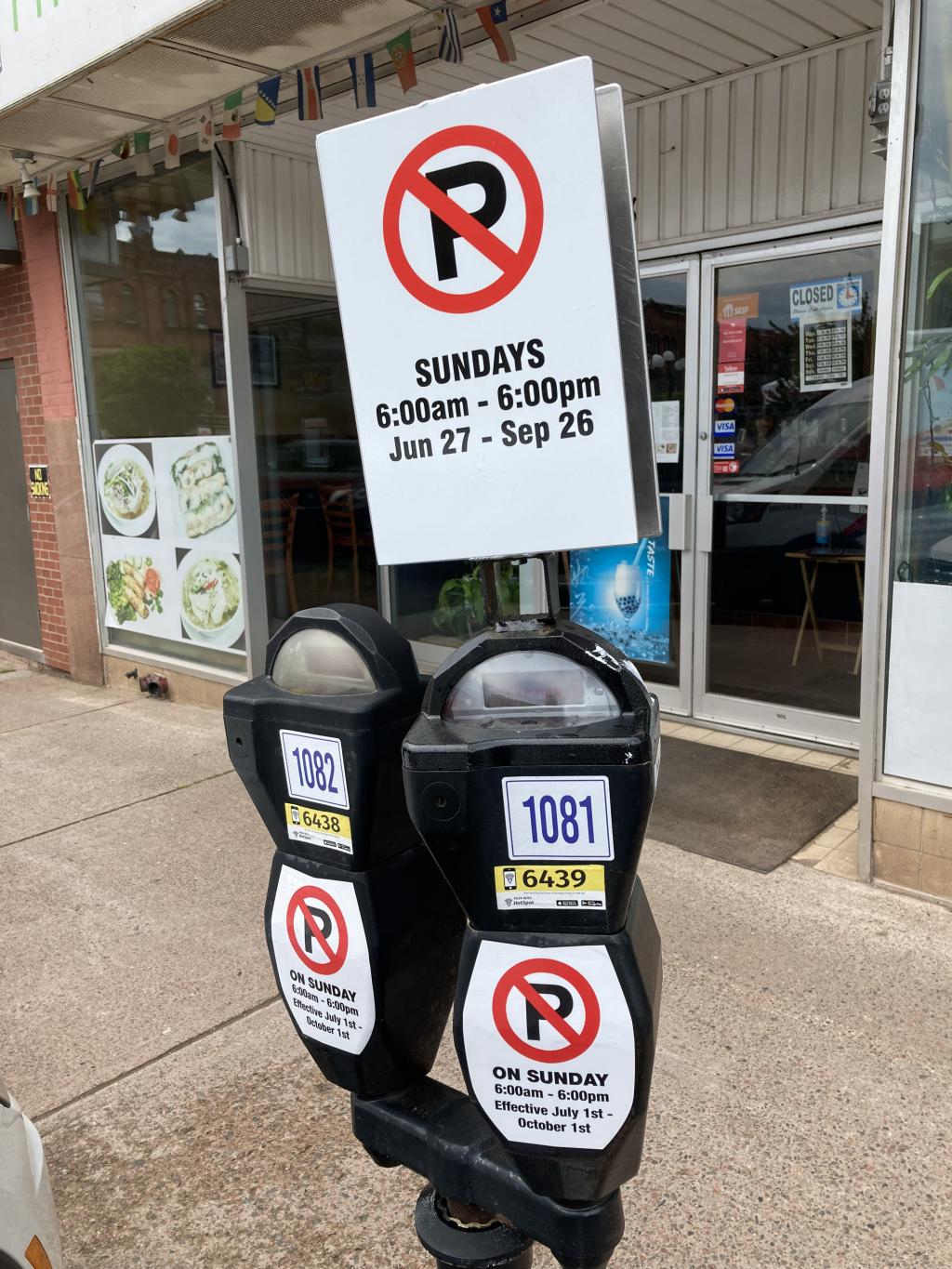
As part of the run-up to Pride Week, The Lucky Bean in Stratford hosted a “make your own tie dye t-shirt workshop” tonight, and Olivia and I signed up.
Tie dye, aesthetically or big-messily, has never been my jam; this totally would have been Catherine’s department. But the script supervisor decided to expand my role, and it turned out to be maximum fun.
Our shirts are in the wash for their final rinse as I write.
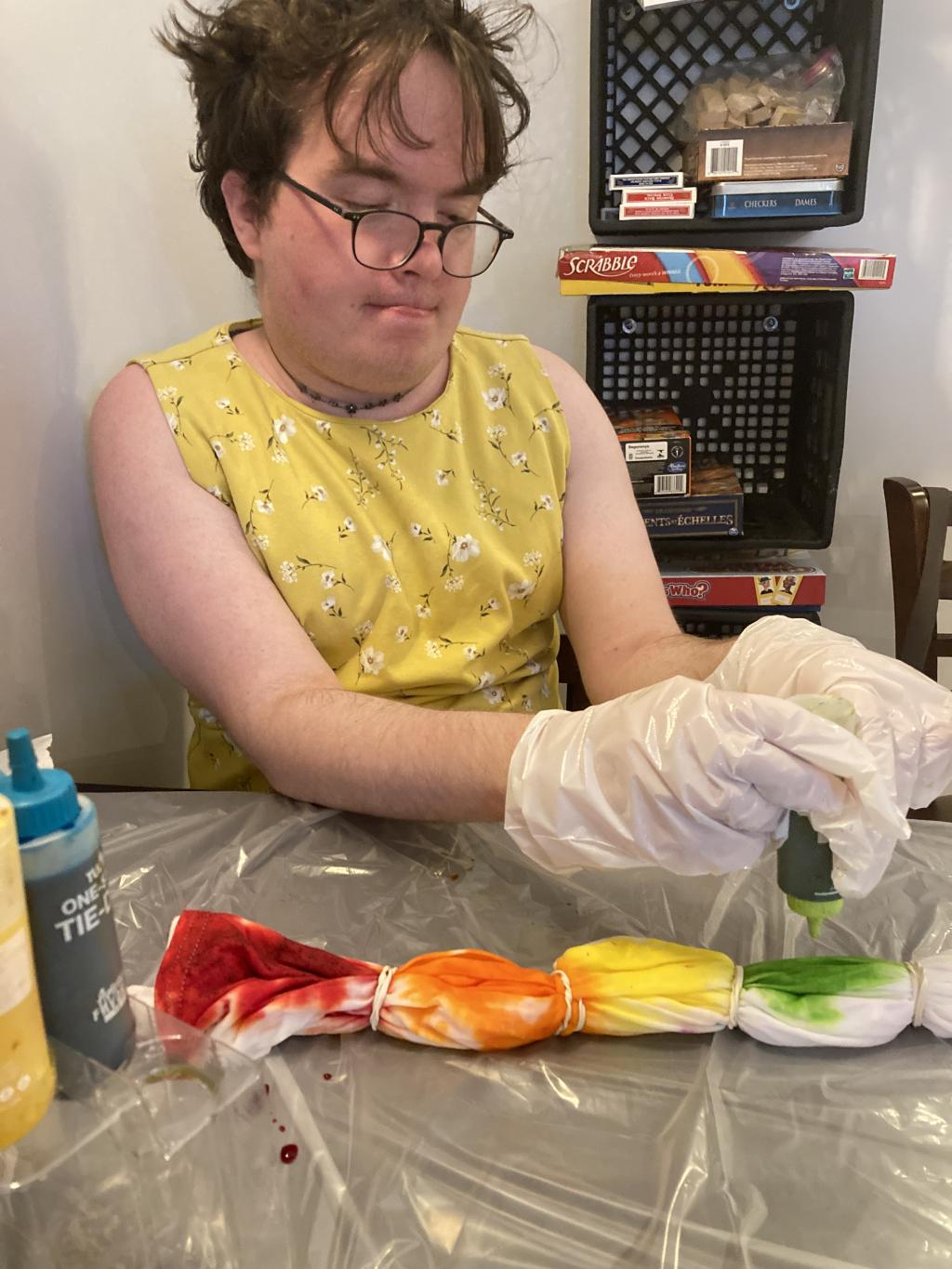 ,
, 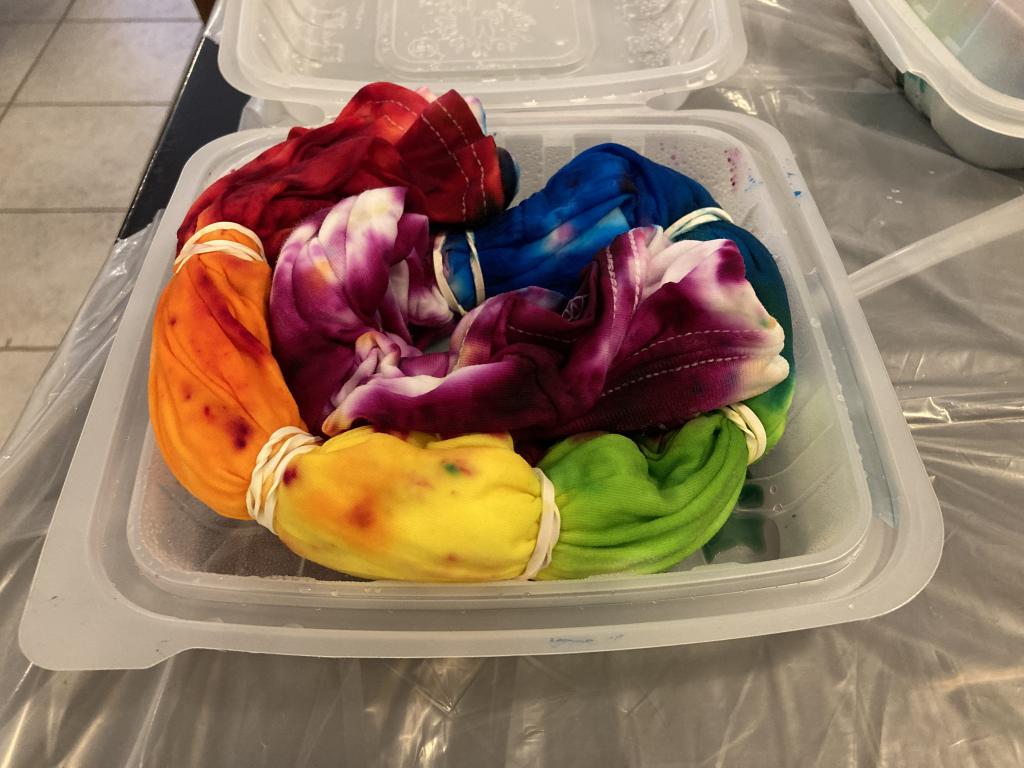 ,
, 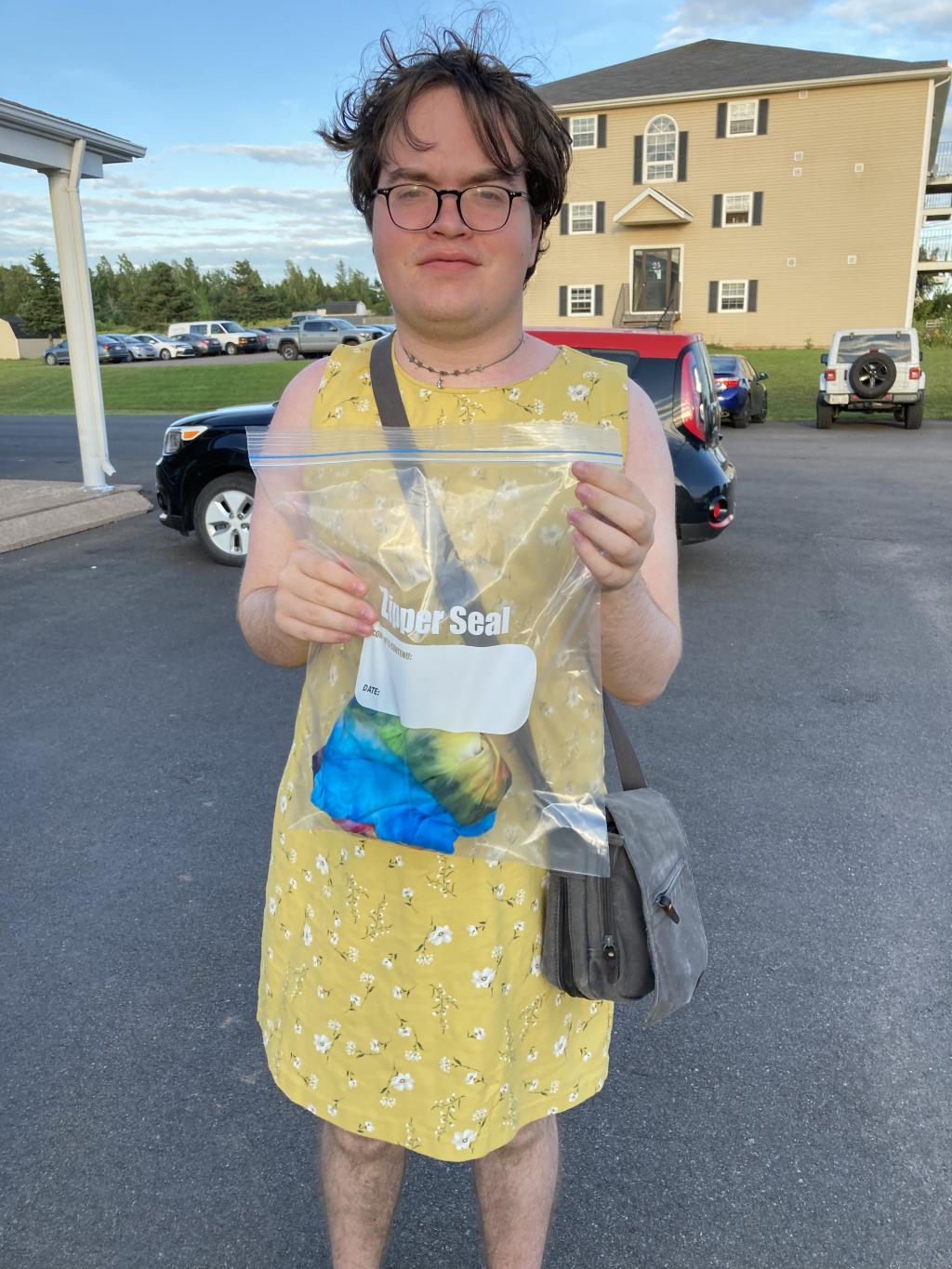 ,
, 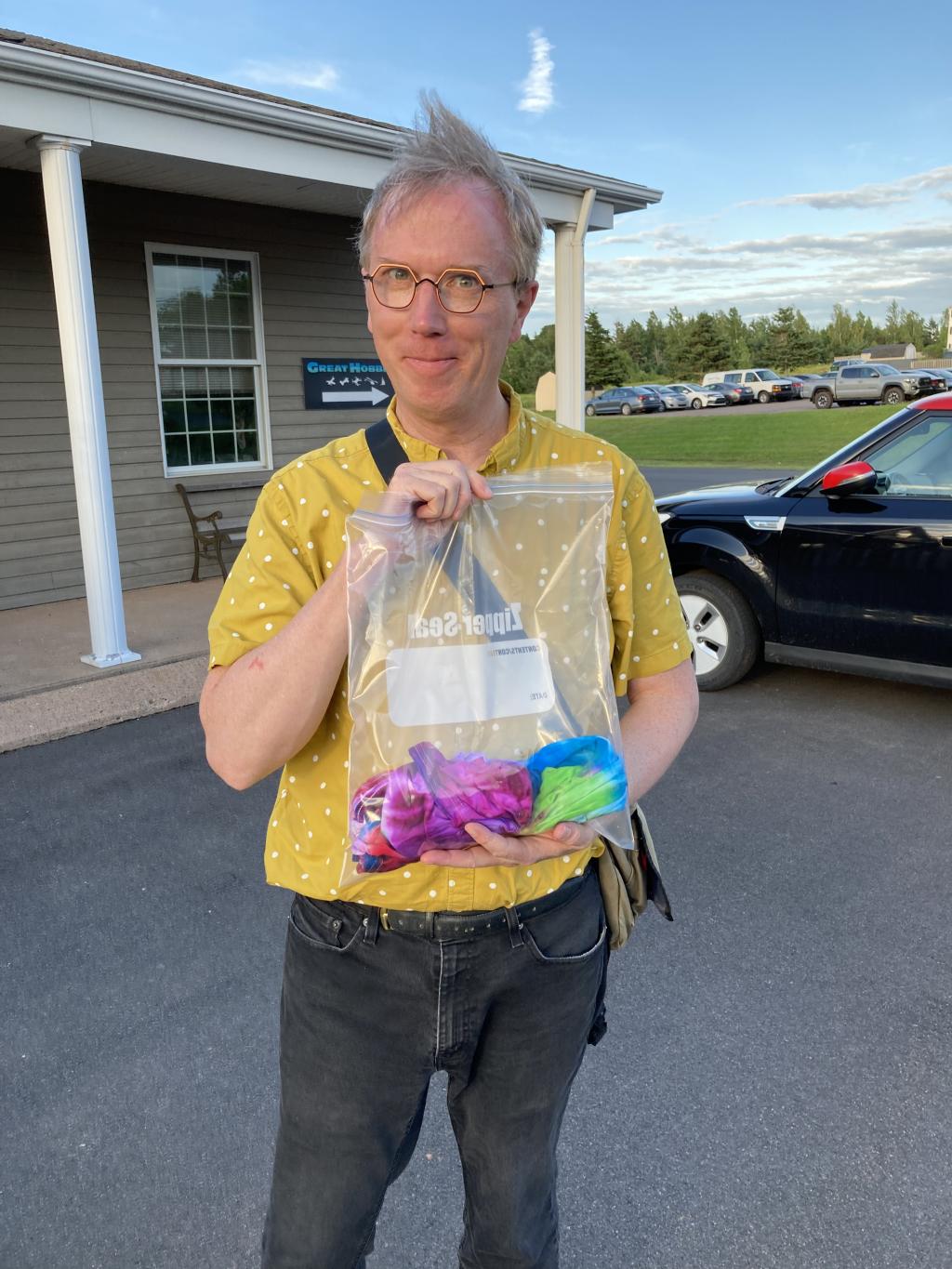
After a scaled back 2020, Island Fringe is back for 2021, celebrating its 10th anniversary (!) in fine form, running July 28 to August 1.
Given the situation, they’re departing from the traditional “buy a pin, get into everything” format and switching to all-ticketed shows this year, so now is the time to think ahead and get tickets.
I’m happy to return as a sponsor this year (my 8th): I think of the Fringe as “theatre for people who love theatre but don’t enjoy the theatre,” and it brings me great joy to support it.
I can think of no better way to spend the August not-actually-a-holiday-on-PEI weekend.
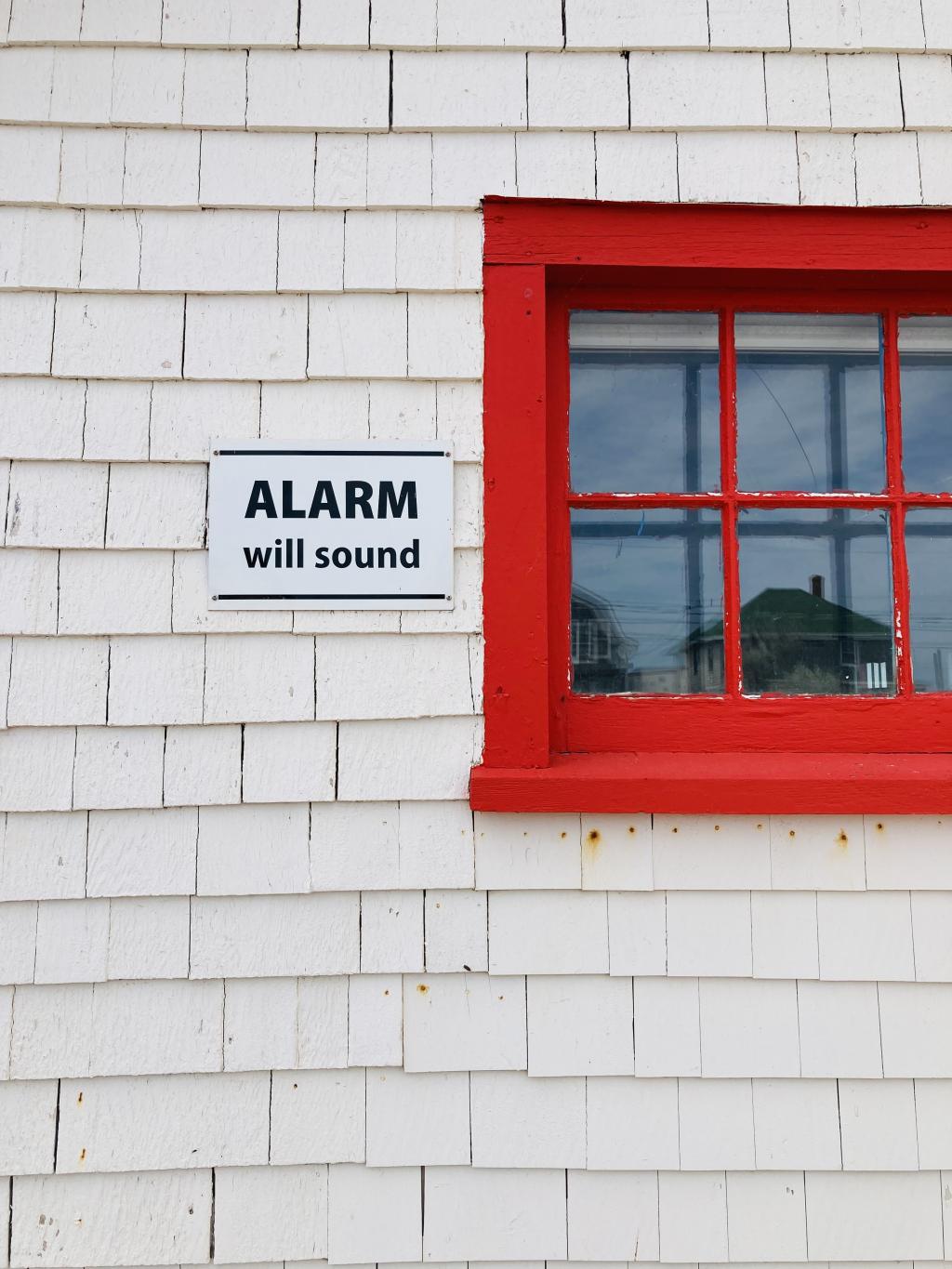
 I am
I am